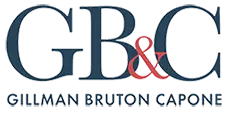When the Bankruptcy Code was changed in 2005, significant changes were made to the tax return filing requirements for Chapter 7 and Chapter 13 consumer bankruptcy debtors. The changes increased the need for a Debtor and their counsel to review tax filing information before filing a Chapter 7 or Chapter 13 consumer bankruptcy case.
The Bankruptcy Abuse Prevention and Consumer Protection Act of 2005 (which applies to bankruptcy cases filed after October 17, 2005) requires that the debtor file tax returns or transcripts with the Court. See 11 U.S.C §521 et seq. In New Jersey Bankruptcy cases, Local Rules permit this requirement to be met by forwarding the last filed tax return or the tax transcript to the Trustee in the Chapter 7 or Chapter 13 case. This must be done at least seven (7) days prior to the first date of the meeting of creditors.
In Chapter 13 bankruptcy cases in New Jersey, a particular issue arises “for any return that is not past due as of the date of the filing of the Petition”. For example, if a Debtor files a Chapter 13 Bankruptcy Case in New Jersey on April 1, 2009, the tax returns for the tax year 2008 are not “past due” until April 15, 2009. Due to the nature of the case and the need to fix the amount of claims in the case, it is difficult to confirm the Chapter 13 Plan without the return being filed. If that same Debtor has filed a timely extension of the duty to file the return (automatically fixed at six months, see http://www.irs.gov/newsroom/article/0,,id=108542,00.html), what is to be done with the unfiled return?
11 USC §1308 requires that “if the debtor was required to file a tax return under applicable non Bankruptcy law, the debtor shall file with the appropriate tax authorities all tax returns for all taxable periods ending during the four (4) year period ending on the date of the filing of the Petition.” Subsection (b)(1)(B) provides that “for any return that is not past due as of the date of the filing of the Petition, the later of (i) the date that is 120 days of that meeting; or (ii) the date on which the return is due under the last automatic extension of time for filing that return to which the debtor is entitled and for which request is timely made in accordance with applicable non Bankruptcy law.” There is a procedure built into subparagraph (B)(2) which provides that after notice and hearing, the Court can enter an Order before the tolling of any applicable filing. If the debtor demonstrates by a preponderance of evidence that the failure to file a return as required by this subsection is attributal to circumstances beyond the control of the debtor, the Court may extend the time to file the return for either thirty (30) days or “a period not to extend after the applicable extended due date for a return described in subparagraph (2).”
Important is the use of the word “may” in this provision. The Code gives the Court discretion to extend the time. Ultimately, the decision of whether the Debtor in a Chapter 13 case should be granted time to file the return is given to the bankruptcy judge.
In a recent case, a Debtor I was representing in a Chapter 13 bankruptcy case in New Jersey had filed a timely extension but was faced with the Chapter 13 Trustee’s request that the case be dismissed for failure to file the 2008 tax return. Although we were able to argue that the case should not be dismissed, the Court fixed a date before October 15, 2009, for the return to be filed.
This is an example of how the provisions of the bankruptcy code as it applies to Chapter 13 debtors in New Jersey are often complicated and should not be reviewed without the advice and counsel of an experienced bankruptcy attorney.


